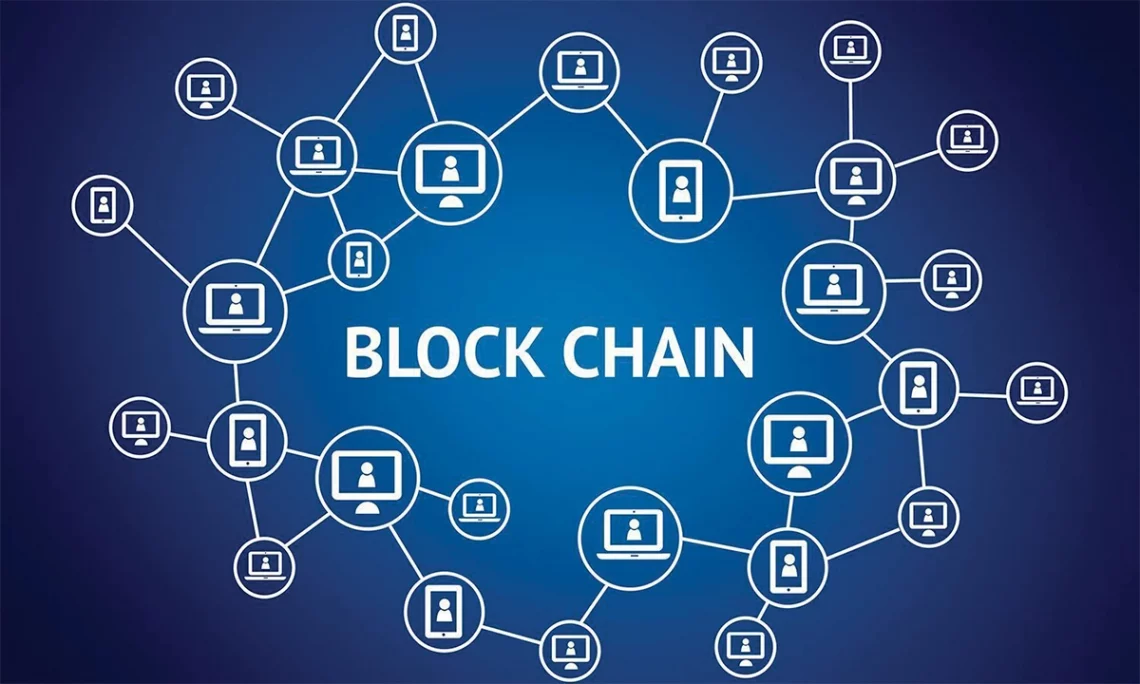There is no doubt that electoral malpractices pose a menace to, and lessen the effectiveness of democracy in Nigeria. This act ranges from falsification of election figures and results, fake ballot papers and vote manipulation, underage voting, thuggery, and intimidation by politicians.
Even when the Independent National Electoral Commission, INEC, promised Nigerians free and fair elections by introducing card readers for voters’ verification and transmission of polling results to the centralized INEC database, the 2015 and 2019 elections were perceived to be “at least” better compared to previous elections, yet elections and electoral system in Nigeria are still far from being tagged credible.
The Future with Blockchain Technology
Away from the media and enchanting promises made by INEC and the Nigerian government, a proactive measure calls for the consideration of electronic voting (which was debated on the floor of the National Assembly in June 2021). With the application of emerging technologies in most sectors, blockchain technology should be adopted to improve avoidable challenges such as results inconsistency and untrustworthiness facing the electoral system in Nigeria. Even though malpractices such as voter buying and intimidation of political opponents, may be inevitable in the current structure, giving maximum security to the avoidable malpractices would go a long way in making sure the electoral process is trusted by the Nigerian people. In this regard, electoral malpractices, especially falsification of results and manipulation of votes are enough to justify adopting the blockchain technology since voters do not have the trust of the centralized INEC database and the present electoral system. In a nutshell, adopting the blockchain service would pave the way for an electoral system that is highly secure, decentralized, and guarantees an auditable chain of records.
The Blockchain Architecture
The blockchain is a revolutionary model serving as the underlying technology behind bitcoins and other existing cryptocurrencies. It effectively transforms how data is qualified, verified, secured, transferred, and stored. Without a doubt, the global impact of blockchain technology over the next 10 years will be massive. Hence, it is important to understand the innovative features behind this technology to apply its many benefits to various spheres of human life.
Therefore, the blockchain ecosystem can be divided into three levels namely, Level 1, Level 2, and Level 3. Level 1 consists of a network of nodes that validate transactions on the block through algorithms such as proof of work or proof of stake. On the other hand, Bitcoin, which is the most popular cryptocurrency can be classified as Layer 2. The level 3 structure is still emerging and basically at the application level which includes smart contracts with predefined rules specific to the application. For instance, the rules and regulations of an electoral system will be integrated as a smart contract and can be deployed on the layer 3 ecosystems.
How Blockchain can impact the Electoral System in Nigeria
The blockchain consists of distributed ledgers with a history of previous transactions stored in a block, each with its own specific transaction hash. It also provides technological advancement to applications where security, decentralization, and transparency are critical. Therefore, this article aims at describing a possible combination of both the blockchain (for vote verification and validation) and a secure database platform (for voters’ registration) in Nigeria. This in turn would provide a complete blockchain-based e-voting platform that offers the security of voting results, decentralization, and transparency.
Since the blockchain provides access to all information stored on the network, the centralized platform needs to be utilized to prevent voters’ private information from being accessible to anyone. In this regard, only the vote verification, validation, and storage will make use of the blockchain thereby enabling decentralization and distribution of voting results to all participating nodes in real-time.
Blockchain technology can undoubtedly trigger the beginning of a new phase in the election processes in Nigeria. While people mainly focus on utilizing blockchain technology for cryptocurrency transactions, Ethereum (ETH) smart contracts can be deployed solely for the electoral purpose in the country. This contract will comprise predefined election rules and information (names of registered voters and candidates) specific to an election i.e. Presidential, Governorship, House of Representatives, etc.
Although INEC’s electoral structure allows voters’ registration, voters’ verification, voting, and result collation, adopting the blockchain for vote verification, validation and consistency will allow credibility and trust of the electoral process by the people.
Results verification and validation
Since the manual system of voting is still in use, voters are required to be present at their registered polling units to cast their votes. Upon successful voting exercise, votes are counted and immediately sent to the blockchain through decentralized card readers. i.e. the data on the card readers can be accessed by other card readers across the network, transactions, or data for verification and validation by the electoral stakeholders.
All valid votes cast in the polling unit need to be verified and validated before being stored in the block. To achieve this, the proof of stake algorithm will be adopted. This algorithm gives only stakeholders the authority to mine and adds new transactions into a block. In this regard, every political party must provide a representative or stakeholder whose responsibility is to be part of the consensus to verify and validate votes or transactions before they are accepted and stored in the block. Also, before any stakeholder is added to the consensus, a huge amount of money and certificate of party registration must be put up as collateral.
This will be forfeited if any stakeholder is caught in any form of electoral malpractice or action that goes against the smart contract rules.
Every political party/stakeholder in the consensus has a unique identification (i.e. private and public address stored on the blockchain) for traceability, vote validation, and easy identification of the history of stakeholders’ mining activities. However, for voting results or transactions to be stored into the blockchain, more than 70% of the electoral stakeholders must agree on the results or transaction, once vote results are fully verified and stored on the blockchain, they cannot be deleted and modification may be allowed only when a consensus is reached among the stakeholders.
Conclusion
In conclusion, electoral malpractice is one of the drawbacks to the development of Nigeria. Although a lot of significant progress has been made to address this anomaly, yet the battle is not yet won. Hence, the Nigerian people must work hand-in-hand with the electoral institution, INEC, to ensure that electoral malpractices are tackled. This is why this article gives an insight into the need to adopt blockchain technology for voting results verification and validation. There are a lot of prospects in Nigeria if its electoral processes have the complete trust of the people.
Akindipe, is a software engineer/blockchain technology enthusiast
Email: akinfergie@gmail.com




